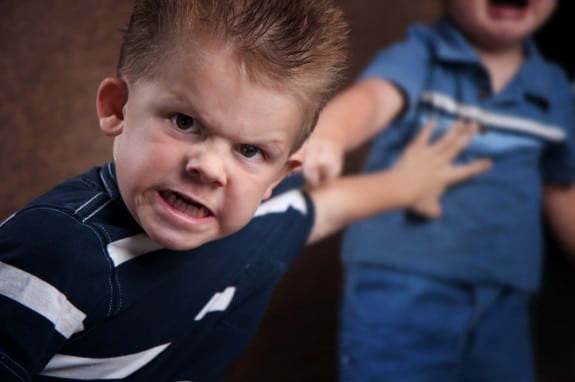In a study that examined the complexity of bullying among children, Dutch researchers have found that bullying starts much sooner than we might have ever thought possible – before children even start school. The news is bound to be both concerning, and shocking, to parents all across the country.
“I was very surprised by how young these kids are,” Rachel Annuziato, an assistant professor for clinical psychology at Fordham University in New York City, told CBS News. “I think our understanding of bullying is that it’s something that starts a little later cognitively and developmentally, but this suggests that isn’t the case. From the day kids walk into school, this is a concern.”
According to Annuziato, researchers have considered bullying as more of a school-based phenomenon before now – a behavior that children learned from other kids while in school. However, these new findings imply something completely different – that children are picking up bullying behavior outside of school.
“Kids who are being picked on might start to think that this is the way to fit in, to pick on other kids,” Annuziato suggested. “That becomes their way to assert themselves after they’ve experienced bullying.”
Susan Tortolero, a professor of public health at the University of Texas School of Public Health in Houston added that the link between a bully and a victim may also offer clues to the link between bullying and obesity – a phenomenon that researchers have noticed in previous studies, and seemed to be prominent in the current study.
In the new Pediatrics published study, more than 1,300 Dutch children and their teachers were surveyed to learn which children were bullies or victims, how often bullying occurred, and what type of bullying occurred: physical (hitting, kicking); verbal (teasing, name-calling); relational (being excluded or shunned); or material (destruction or hiding of personal items). Researchers also classified children according to body-mass index to separate them into categories of normal weight, overweight, or obese.
Pauline Jansen and her colleagues at Erasmus University Rotterdan also took into account other factors that could increase the risk of bullying or being bullied, including age, sex, national origin, other’s level of education, whether or not the child lived with a single parent, and whether or not the child had siblings.
“A lot of these risk behaviors may have to do with self-regulation, self-discipline, and decision-making, which gets into the executive functioning of the brain,” Tortolero told CBS News. “It could be that poor coping is going on here, too. They could be experience aggression because they’re being bullied and they don’t know how to cope with it or express it.”
Researchers on the study also speculated that problems managing emotions could be contributing factors to both peer problems and abnormal eating behaviors – which could explain the bullying-obesity link even further. For this reason, Tortolero says that it’s important for parents to address bullying behavior by modeling healthy social relationships that will help to build a child’s self-confidence.
“If your child has a risk factor for kids picking on them, it’s really important to give them skills to cope with those things and to build their self-esteem,” she said. “If you teach your children to problem-selve and how to make decisions, then they will be more successful.”
Tortolero also says that it could help to address a child’s issues with obesity by helping them make better choices when it comes to eating and physical activities – particularly in activities and hobbies they do well in.
Related Articles:







